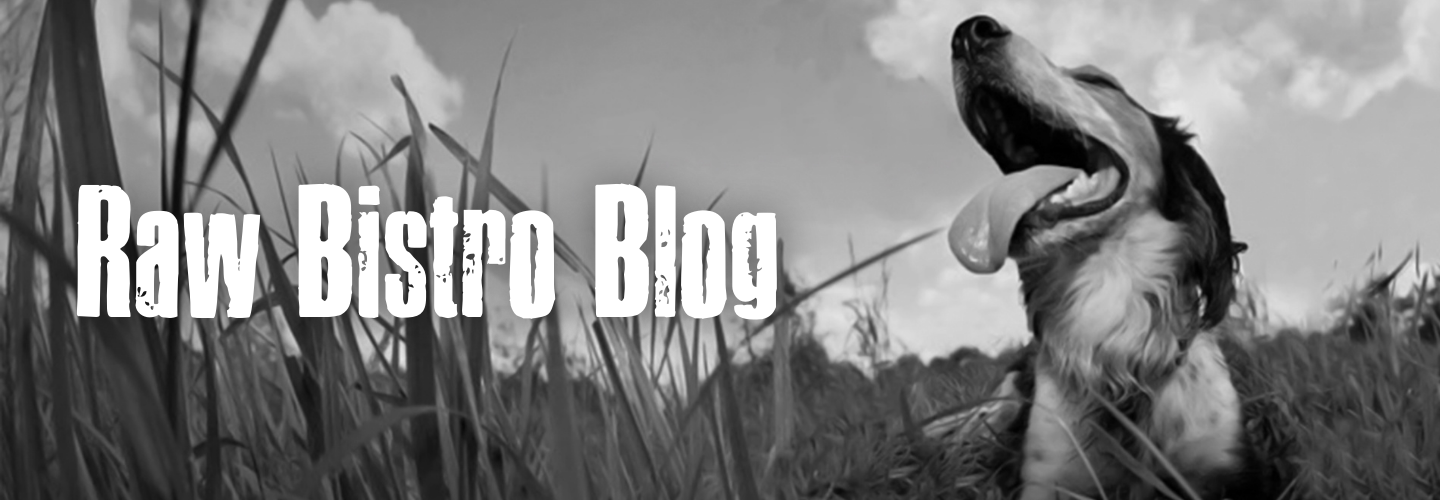
In recent years, keto diets have risen to the top becoming the ever-popular new health fad in the human world - but can your dog benefit from a ketogenic diet too?
A ketogenic diet is essentially a low-carb, moderate protein, and high-fat diet that turns the focus away from grains and plant-based proteins (like potatoes or starches) and instead harvests energy from fats and proteins. In humans, keto diets are often used as a method of weight-loss, however there may be added health benefits for those with chronic health conditions. Keto is more than just a trend - it could be a life-changer, especially in dealing with diseases.
When it comes to canine nutrition, keto diets are fairly similar to a raw dog food diet, and your dog may already be well on their way to transitioning to a full keto diet. In this article, we'll dive into all-things keto and discuss when or why you might want to consider getting your dog on a keto diet.
Ketogenic Diets for Dogs
Ketogenic raw food diets are designed to promote ketosis in dogs. Ketosis is a metabolic state that occurs when your body burns fat for energy as opposed to glucose, or sugars. Fat burning is metabolically optimal for carnivorous canines that don't require a carbohydrate requirement. Note that this type of diet must be consistently maintained in order for the body to remain in a ketosis state.
Benefits of Keto Diets
Since keto diets are low in carbohydrates and high in proteins and fats, they are highly recommended for dogs battling cancer. Cancer largely feeds off of the body's carbs and sugars, which can be overproduced on a kibble or non-species appropriate diet. Keto diets will change how the body is metabolizing, so carbohydrates will be coming from vegetables rather than grains.
When our dogs are fed a kibble or grain-based diet, their bodies are essentially working overtime to metabolically breakdown the ingredients they are consuming. And since dogs have no nutritional requirements for carbs, this can pose a risk for worsening or developing illnesses such as cancer, diabetes, obesity, epilepsy, and other food sensitivities or chronic diseases.
Is It Safe For Dogs?
One of the first things as pet owners that we ask before considering any new diet change is: is it safe for my dog?
The short answer is yes, but with caution. Not all keto diets are complete and balanced - pay attention to food labels, especially if you are following an at home recipe, as it could be too high in fat for your dog's needs. You should also be aware that high fat diets should be marketed at a lower price point since those ingredients are much cheaper to purchase than lean meats - you don't want to end up paying more for a meal with less nutritional value that your dog needs!
Because of this, it might be best avoid keto diets in general for young puppies. The most important thing for them is to get a complete and balanced diet for their growing bodies and they absolutely can not miss any nutrients.
How to Switch to a Keto Diet
Different sources may tell you different requirements for what the exact percentage of fats, proteins, and carbs should be. Generally, keto diets will consist of roughly 70% fats, 25% protein, and 5% carbs (that come strictly from vegetables). If you are wanting to try out a keto diet for your dog but are unsure if whether or not going fully keto might be a good idea, talk to your holistic or integrative veterinarian to come up with a diet plan that's right for your dog.
Since keto diets will change how your dog is metabolizing their energy, they may experience mild detoxification symptoms following their transition to a keto diet. Detoxification symptoms you should be aware of and monitor after transitioning may include:
- Lethargic behavior more than usual (similar to what is called the "keto flu" in humans)
- Dehydration or loss of electrolytes
- Diarrhea or constipation
- Potential increase in risk of developing pancreatitis
Raw Bistro Keto Options
Any of our complete and balanced frozen raw entrees may be doubled as a leaner raw keto diet option. We utilize leaner cuts of meats to meet nutritional standards for amino acids & minerals as much as possible through whole foods. Therefore, our diets are much lower in fat than the typical 70% fat and higher than the 25% protein. Also, note that because they are meant to be formulated as a true rotational diet, each meal contains a fruit that could potentially be on the keto no-no list if you are following a super strict ketogenic diet.
Choosing What's Best for Your Dog
Unless you have a specific reason for going fully keto (such as treating cancer or another medical condition) opting for a raw dog food diet may be better overall nutrition for your dog.
Since keto diets are heavily fats focused, your dog could be gaining too much and not burning enough. Your dog could get dehydrated much faster, miss out on important proteins, or experience other nutrient deficiencies including vitamins and minerals.
Whether you decide to switch to a keto diet for dogs or stick to a raw dog food diet, make sure which ever diet you choose is the best option for your dog in fulfilling their specific needs. Just like any functioning body, the better quality of fuel you feed them, the better fitness, longevity, and overall health they'll have.
At Raw Bistro, we're dedicated to supporting not just our raw food community but every pet owner out there, getting you the real and raw truth on all things diet related. If you have any questions or just want to chat, schedule a raw dog food consult with one of our raw dog food experts today!

